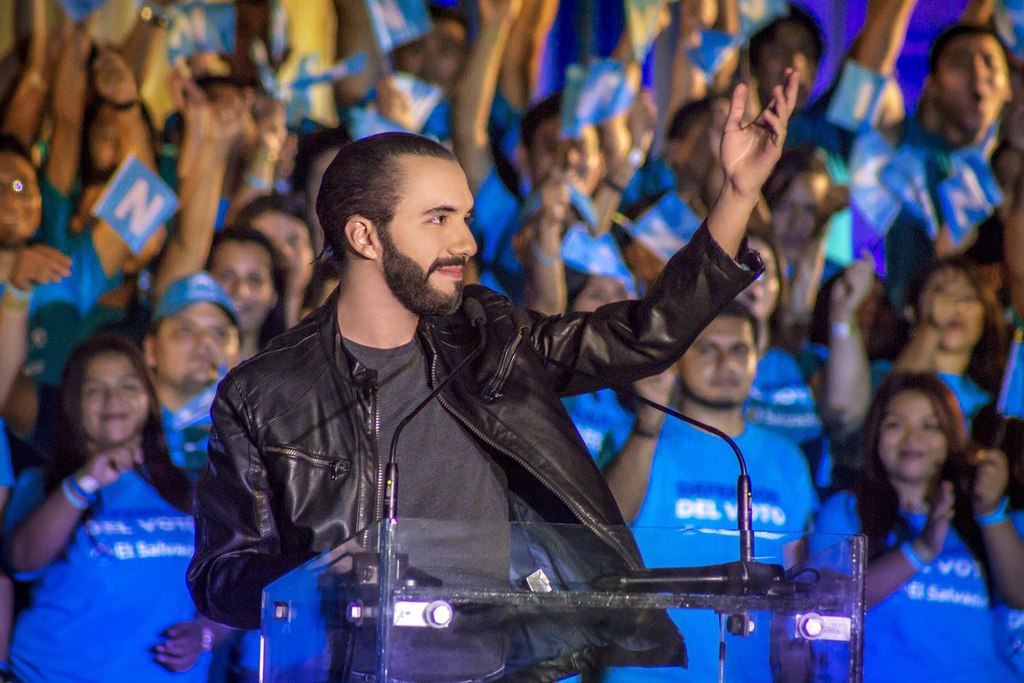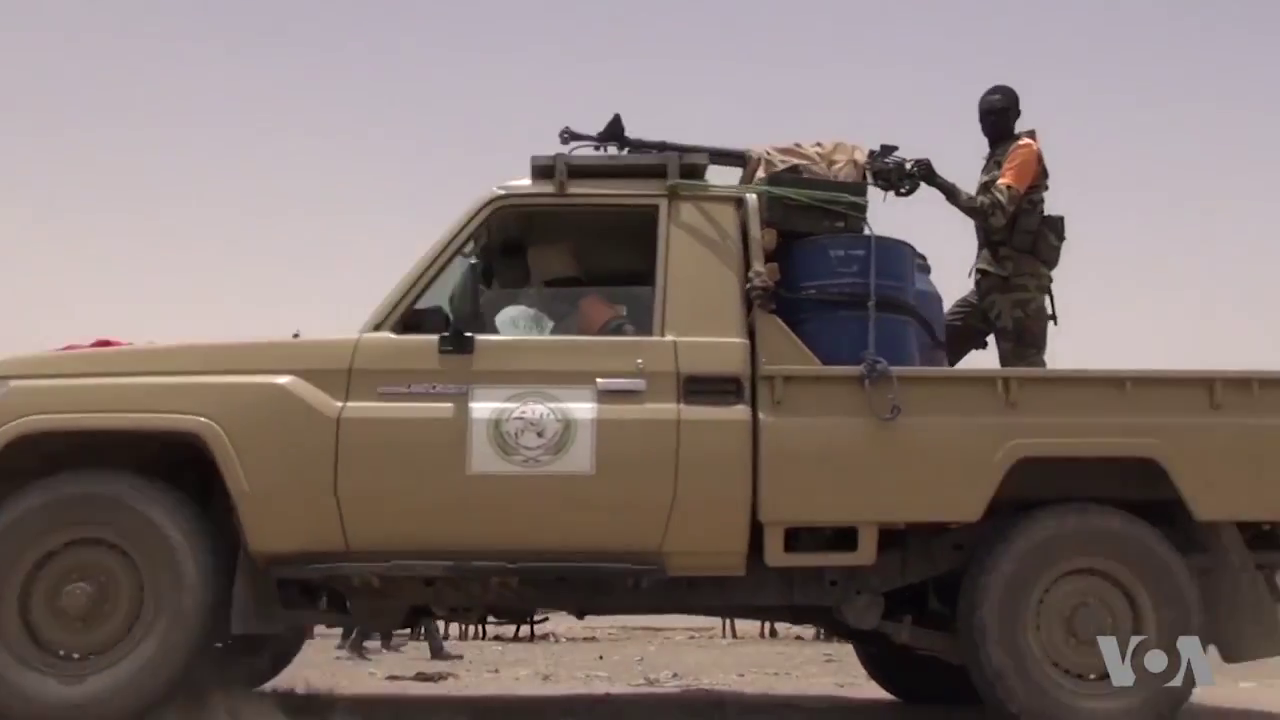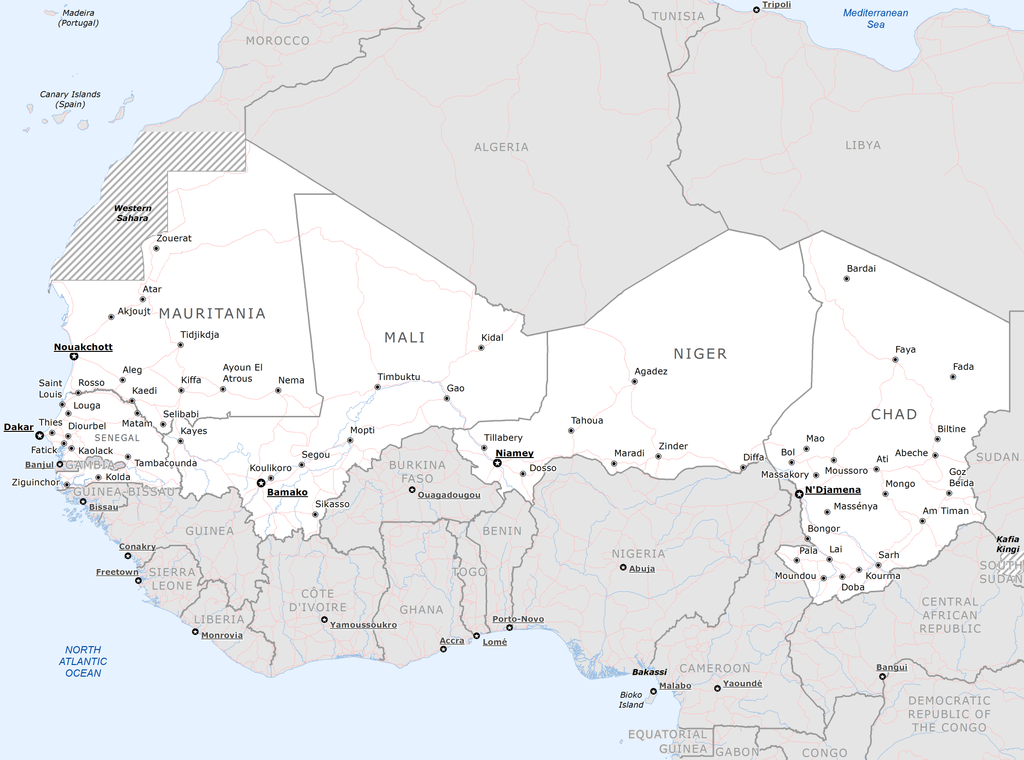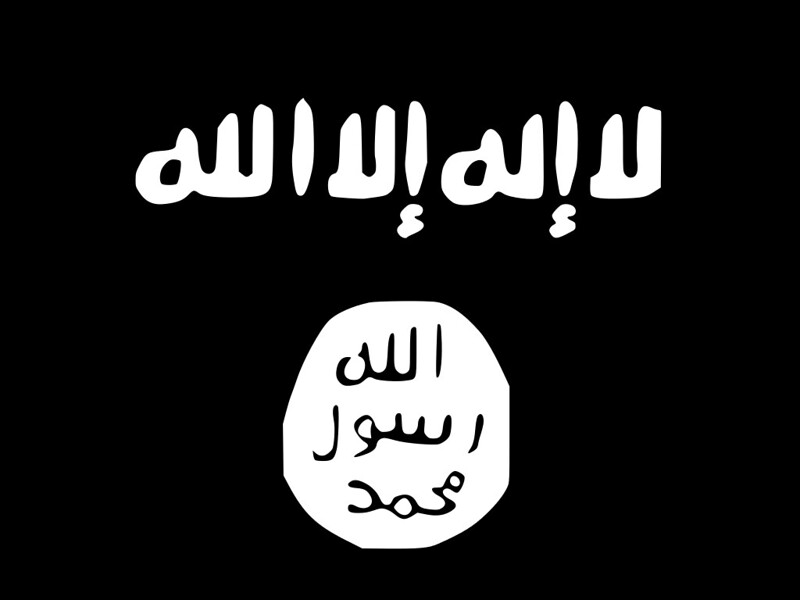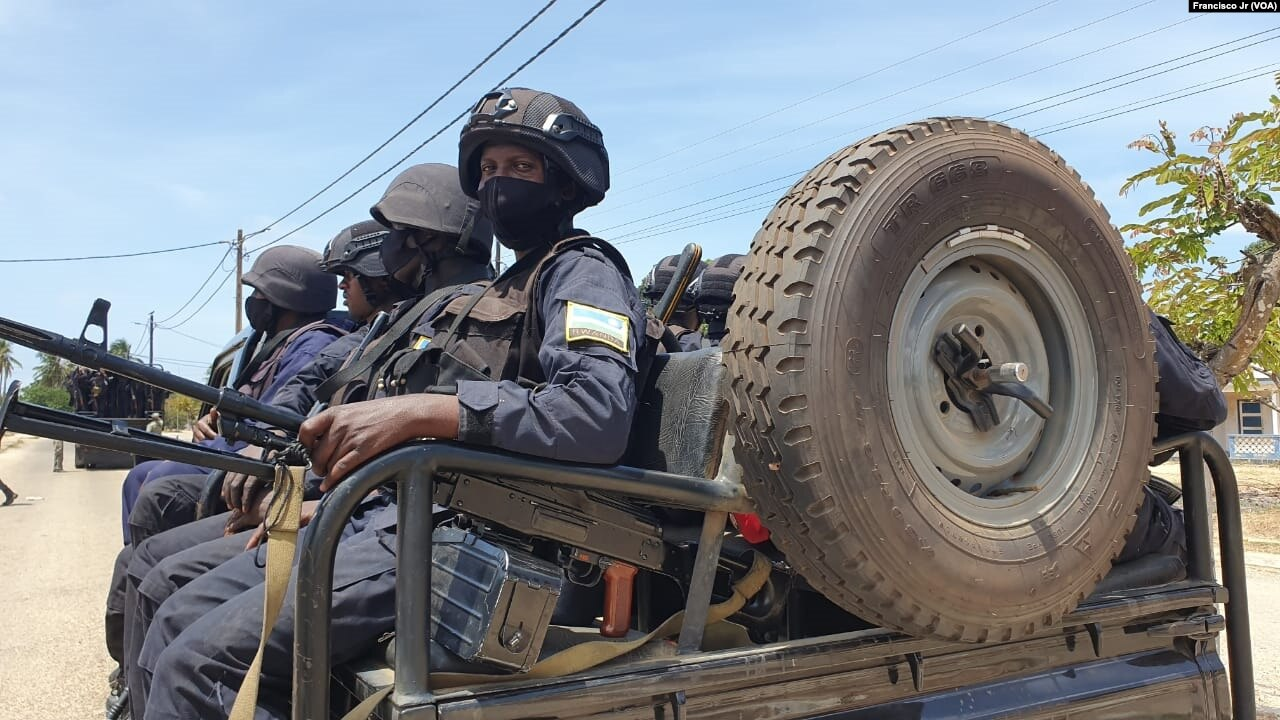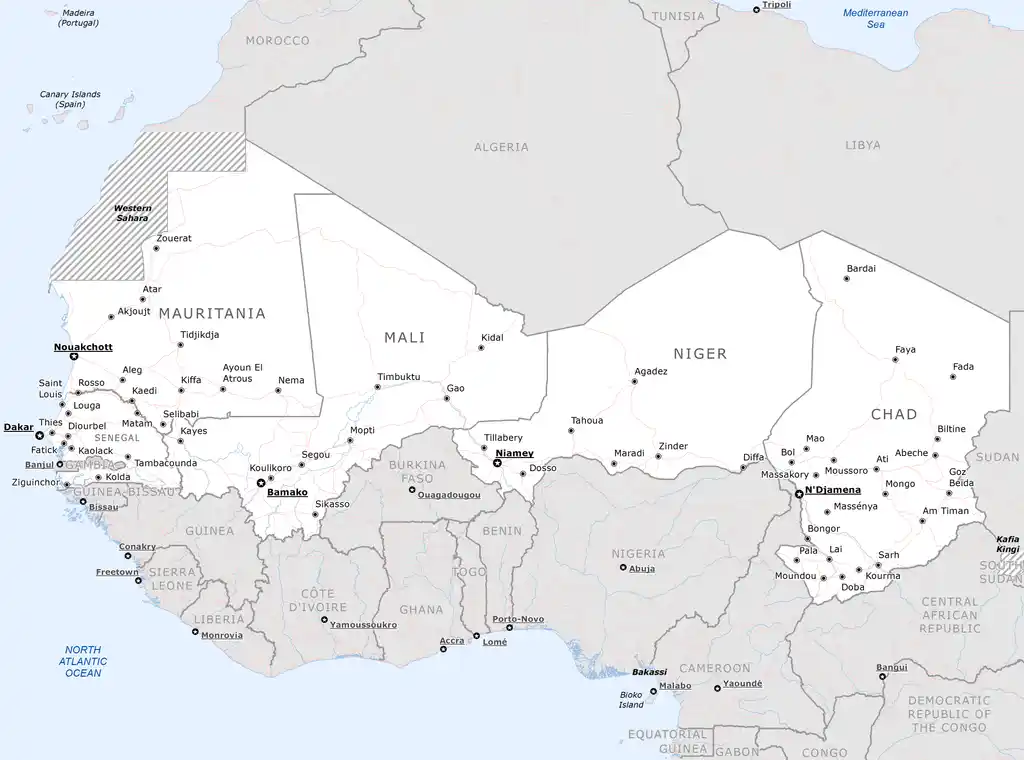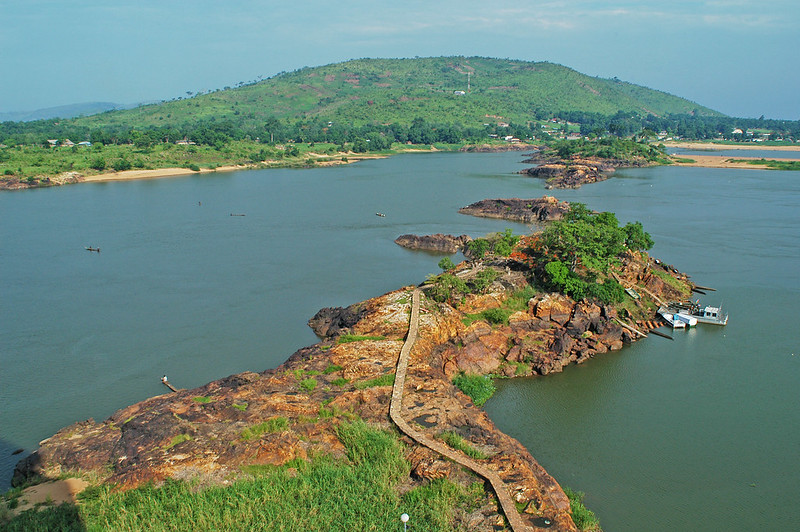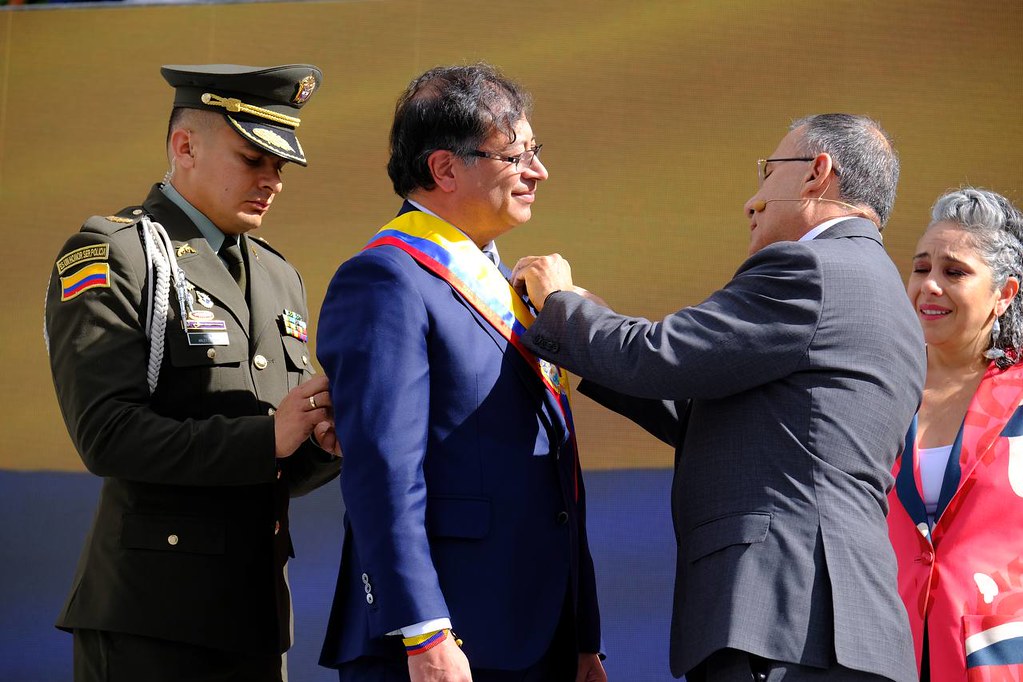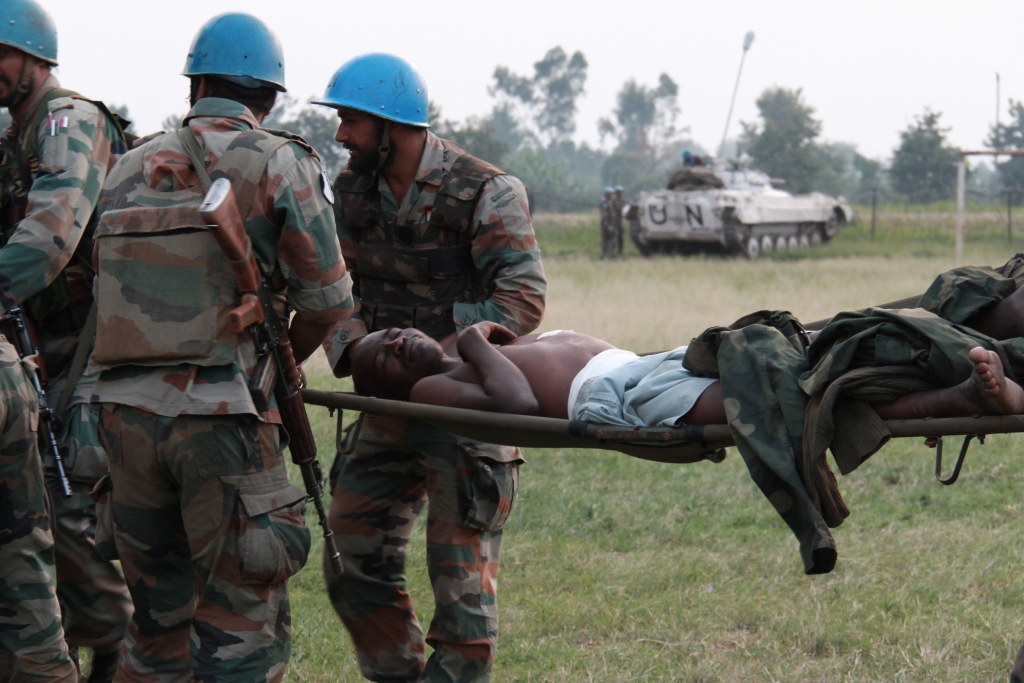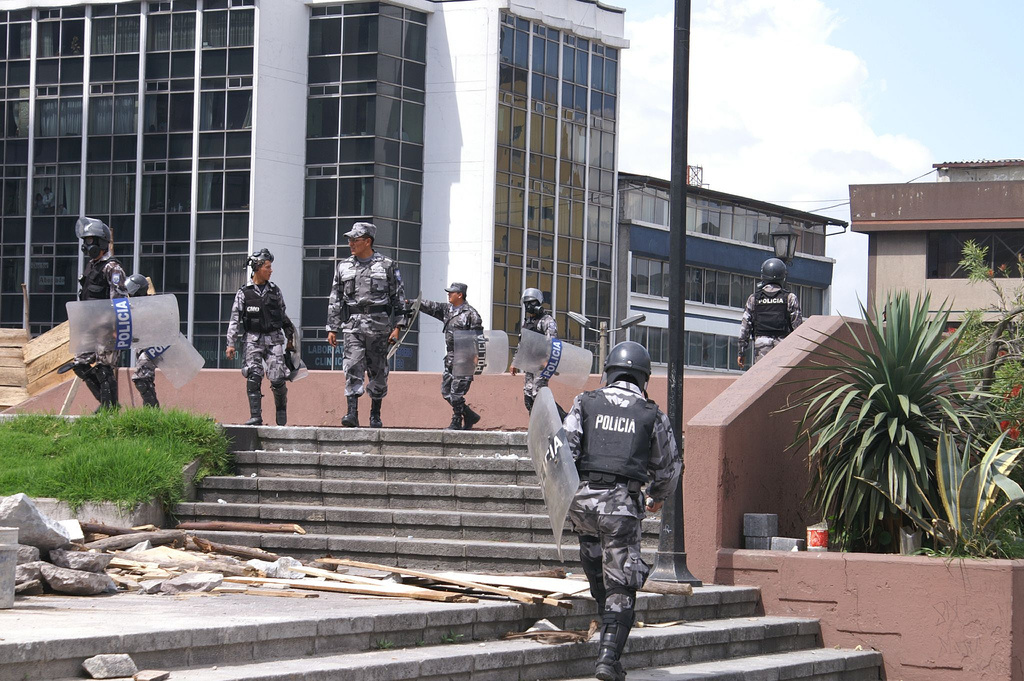
Ecuador’s Police patrol streets of the capital, Quito, after civilian unrest.
“If the State Public Security Council declares these groups as terrorists, the Armed Forces of Ecuador may intervene in security matters without the need to amend the country’s Constitution.”
For several years, violent crime has risen rapidly in Ecuador. Guayaquil, the country’s second largest city and its main port, now contends with a homicide rate of 46 per 100,000 citizens, making it one of the most dangerous cities in Latin America. A host of unsavory criminal organizations have established an operational presence in Ecuador, from Colombian criminal organizations operating over the border, to Mexican cartels, and even the Albanian mafia.[i]
Criminal organizations take advantage of Ecuador’s weak governance, convenient ports, and dollar economy. First, Ecuador’s weak governance translates into safe havens for many groups. Second, the country’s Pacific coastline provides a multitude of options for shipping illicit products out of Ecuador. Lastly, the country’s dollarization means the proceeds from the sales of illicit products can be easily laundered. The excerpted article from Argentina-based Infobae, reports that Ecuadorian President Guillermo Lasso, under significant pressure to improve security, plans to declare criminal organizations “terrorist groups.” By doing so, Lasso intends to use Ecuador’s military to combat criminal organizations and bypass what would otherwise require constitutional changes.[ii] Meanwhile, as the Spanish daily El País reports, Lasso’s approval ratings have not only slipped dramatically, but he now faces impeachment charges in Congress. Lasso has lost significant support because of the country’s public insecurity, and the impeachment charges involve a claim that his government has been penetrated by criminal organizations.[iii] Ecuador’s slide into insecurity illustrates what is at stake when weak institutions, weak state capacity, and transnational criminal organizations converge.
Sources:
“El gobierno de Ecuador busca declarar a las bandas criminales como terroristas (The Ecuadorian government seeks to declare criminal gangs as terrorists),” Infobae (the Argentina-based outlet with some of the best regional coverage of any Latin American outlet), 20 April 2023. https://www.infobae.com/america/america-latina/2023/04/20/el-gobierno-de-ecuador-busca-declarar-a-los-grupos-criminales-como-terroristas/
The Ecuadorian government wants the State Public Security Council to declare criminal groups as terrorists. The purpose of the measure is for the Armed Forces to be able to participate permanently in what the Minister of Government, Henry Cucalón, has called a war due to the “unprecedented terrorist wave” that the country is facing. If the State Public Security Council declares these groups as terrorists, the Armed Forces of Ecuador may intervene in security matters without the need to amend the country’s Constitution. Currently, Ecuador’s Congress is processing partial constitutional reforms so that the military can support the police in internal control and in the fight against organized crime.
“Las claves del juicio político del presidente de Ecuador Guillermo Lasso (The keys to the political trial of Ecuadorian President Guillermo Lasso),” El País (the Spanish newspaper with hemispheric coverage), 24 April 2023. https://elpais.com/america-colombia/2023-04-24/las-claves-del-juicio-politico-del-presidente-de-ecuador-guillermo-lasso.htmlThis is the first time that a president has been subjected to impeachment since the approval of the Ecuadorian Constitution in 2008…In the end, the political trial will be determined in a complex social situation with a high level of insecurity affected by organized crime that keeps the population in anguish with extortion and violent deaths.
Notes:
[i] For more information on Ecuador’s descent into criminal insecurity and the role of Albanian organized crime, see: “Ecuador’s Crime Wave and Its Albanian Connection,” Americas Quarterly, 12 April 2023. https://americasquarterly.org/article/ecuadors-crime-wave-and-its-albanian-connection/; for more information on the Mexican connection, see: Ryan Berg, “Mexican Criminal Organizations Consolidate Their Positions in South America,” OE Watch, 05-2022. https://community.apan.org/wg/tradoc-g2/fmso/m/oe-watch-articles-2-singular-format/416680
[ii] Ecuador’s president has called for Ecuador to receive military and police assistance like the U.S. aid program Plan Colombia. For more information, see: Ryan Berg, “President Lasso Calls for ‘Plan Ecuador’ Amid Growing Security Concerns,” OE Watch, December 2021. https://community.apan.org/wg/tradoc-g2/fmso/m/oe-watch-articles-2-singular-format/400849
[iii] For more information on Ecuador’s complex impeachment process, see: “Crisis in Quito: President Guillermo Lasso Heads to Impeachment Vote,” Council on Foreign Relations, 9 May 2023. https://www.cfr.org/blog/crisis-quito-president-guillermo-lasso-heads-impeachment-vote-0
Image Information:
Image: Ecuador’s Police patrol streets of the capital, Quito, after civilian unrest.
Source: https://commons.wikimedia.org/wiki/File:Police_Ecuador_Riot.jpg
Attribution: Wikimedia, CC-BY 2.0

